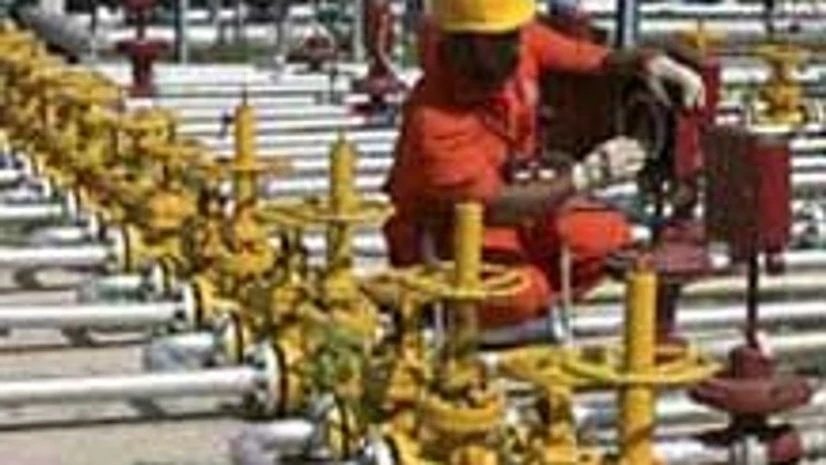The ministry of petroleum and natural gas is working on a proposal to pool domestic and imported gas for the non-priority sector.
The ministry of power has already mooted a proposal to pool natural gas to provide relief to stranded gas-based power generators. The government is also looking into the option of pooling it for non-priority sectors like steel plants, petrochemical units and refineries.
“We are looking into a possibility of pooling re-gasified liquefied natural gas (R-LNG) with domestic natural gas. This would lead to a reduction in prices for them (the intended users) and would encourage them to use more R-LNG,” said a senior petroleum ministry official.
Also Read
The supply of domestic natural gas to the non-priority sector in 2012-13 was reportedly 6.16 million standard cubic metres a day (mscmd). Currently, the priority sectors for supply of domestic gas are fertiliser, power, LPG (cooking gas) and city gas distribution (CGD).
Domestic natural gas production was 101.1 mscmd in 2012-13 and was projected to rise to 156.7 mscmd by 2016-17, according to a study by the Petroleum and Natural Gas Regulatory Board (PNGRB). “The share of R-LNG might increase in the coming years. So, even the pooled price might go up by then,” said Deepak Mahurkar, head of the oil & gas practice at PricewaterhouseCoopers.
The government is already working on a proposal to pump in pooled gas into the pipelines so that it can be accessed by power plants that are stranded. This proposal was mooted to feed gas grid-connected power plants, having a generation capacity of 16,374 Mw. With gas shortage for power plants at 72 mscmd, these units are operating at a 24 per cent plant load factor.
The ministry also has plans to pool domestic and imported gas for the compressed natural gas (CNG) networks and for CGD. The plan was to reduce the price difference between Delhi and Mumbai, where it is available at discounted rates, and other cities such as Ahmedabad. While the current CNG price in Mumbai is Rs 38.95 a kg, it is Rs 45.6 a kg in Delhi and Rs 66.3 a kg in Ahmedabad.
“Since the concept of pooling was floated in 2010, nothing has taken off. There is a clear lack of policy in this regard. If the pooled price comes to above $10 per million British thermal unit, then there is a chance of these non-priority industries going back to imported coal.
Moreover, the lack of assurance on whether there would be a fixed price or not will also create concerns,” said Dhaval Joshi, research analyst at Emkay Global Financial Services.

)
